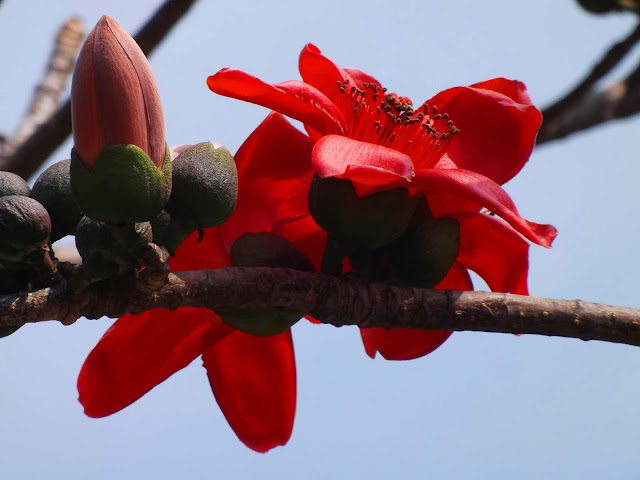Jhika or Indian ash tree, Lannea coromandelica
Jhika or Indian ash tree (Lannea coromandelica, family: Anacardiaceae) is a deciduous medium-sized tree with profuse branches. Bark is grey. It emits a kind of gum. It can grow easily when branches are planted in the ground. It is found everywhere in Bangladesh. Perhaps the plant is originated from the arid region of India, Andaman Islands and Sri Lanka.
Other names: Jiol, Jial, Jigor, Jiga, Jhiga, Jika, Kafila, Kamila, Bialdi, Bhadi.
Leaves are compound; leaflets 5-11, lanceolate, 7-15 cm long and 5-8 cm wide, opposite.
Flowers are small, yellowish, on terminal inflorescence, arising on leaflet branches. Male flowers downward, females pubescent. Flowers bloom in spring.
Flruits are small, juicy, in a bunch, reddish. Propagation of the plant is caused by seeds and cuttings.
The leafy tree looks beautiful all the year round. But in winter it becomes a completely leafless tree.
Leaves and bark are used in heart disease, blood dysentery, stomach disorder, constipation and sore in mouth. It is used as the boundary of house or as fence of cropfield.






Exudes a resin that can be and has been extensively used as an adhesive for sticking stamps on envelopes.
ReplyDelete82F935BFC2
ReplyDeletekiralık hacker
hacker arıyorum
kiralık hacker
hacker arıyorum
belek